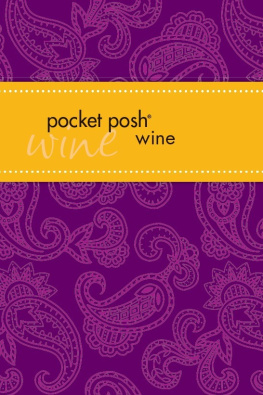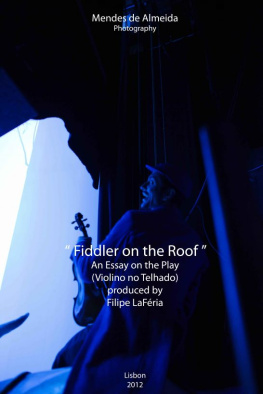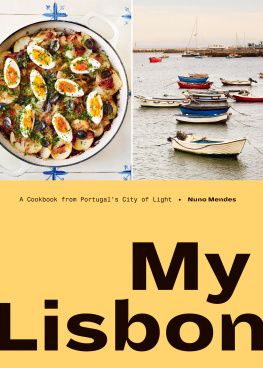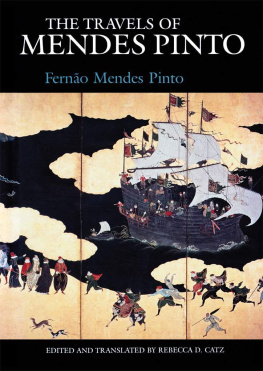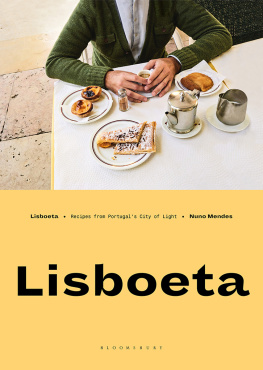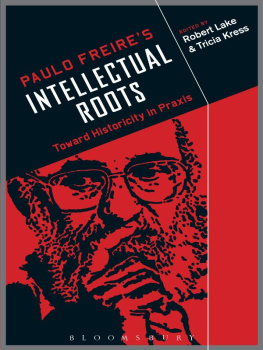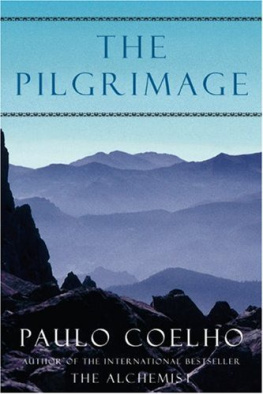THE SEA COMMANDS
EASA Series
Published in Association with the European Association of Social Anthropologists (EASA)
Series Editors: Jelena Toi, University of St. Gallen; Sabine Strasser, University of Bern; Annika Lems, Max Planck Institute for Social Anthropology, Halle
Social anthropology in Europe is growing, and the variety of work being done is expanding. This series is intended to present the best of the work produced by members of the EASA, both in monographs and in edited collections. The studies in this series describe societies, processes and institutions around the world and are intended for both scholarly and student readership.
Recent volumes:
40. THE SEA COMMANDS
Community and Perception of the Environment in a Portuguese Fishing Village
Paulo Mendes
39. CAN ACADEMICS CHANGE THE WORLD?
An Israelis Anthropologists Testimony on the Rise and Fall of a Protest Movement on Campus
Moshe Shokeid
38. INSTITUTIONALISED DREAMS
The Art of Managing Foreign Aid
Elbieta Drkiewicz
37. NON-HUMANS IN AMERINDIAN SOUTH AMERICA
Ethnographies of Indigenous Cosmologies, Rituals and Songs
Edited by Juan Javier Rivera Anda
36. ECONOMY, CRIME AND WRONG IN A NEOLIBERAL ERA
Edited by James G. Carrier
35. BEING-HERE
Placemaking in a World of Movement
Annika Lems
34. EXPERIMENTAL COLLABORATIONS
Ethnography through Fieldwork Devices
Edited by Adolfo Estalella and Toms Snchez Criado
33. BACK TO THE POSTINDUSTRIAL FUTURE
An Ethnography of Germanys Fastest-Shrinking City
Felix Ringel
32. MESSY EUROPE
Crisis, Race and Nation-State in a Postcolonial World
Edited by Kristn Loftsdttir, Andrea L. Smith and Brigitte Hipfl
31. MANAGING AMBIGUITY
How Clientelism, Citizenship, and Power Shape Personhood in Bosnia and Herzegovina
arna Brkovi
For a full volume listing, please see the series page on our website: https://www.berghahnbooks.com/series/easa
THE SEA COMMANDS
Community and Perception of the Environment in a Portuguese Fishing Village
Paulo Mendes
Translated from the Portuguese by Lus Pires
First published in 2021 by
Berghahn Books
www.berghahnbooks.com
2021 Paulo Mendes
All rights reserved. Except for the quotation of short passages for the purposes of criticism and review, no part of this book may be reproduced in any form or by any means, electronic or mechanical, including photocopying, recording, or any information storage and retrieval system now known or to be invented, without written permission of the publisher.
Library of Congress Cataloging-in-Publication Data
Names: Mendes, Paulo, author.
Title: The sea commands : community and perception of the environment in a Portuguese fishing village / Paulo Mendes.
Description: New York : Berghahn Books, 2021. | Series: EASA series ; 40 | Includes bibliographical references and index.
Identifiers: LCCN 2020026221 (print) | LCCN 2020026222 (ebook) | ISBN 9781789209112 (hardback) | ISBN 9781789209129 (ebook)
Subjects: LCSH: Azenha do Mar (Portugal)--Social conditions. | EqualityPortugalAzenha do Mar. | Azenha do Mar (Portugal)--Social life and customs. | Fishing villagesPortugalAzenha do Mar. | Village communitiesPortugalAzenha do Mar.
Classification: LCC HN600.A98 M46 2021 (print) | LCC HN600.A98 (ebook) | DDC 305.509469/42dc23
LC record available at https://lccn.loc.gov/2020026221
LC ebook record available at https://lccn.loc.gov/2020026222
British Library Cataloguing in Publication Data
A catalogue record for this book is available from the British Library
ISBN 978-1-78920-911-2 hardback
ISBN 978-1-78920-912-9 ebook
Contents
Acknowledgements
You may be alone out in the sea but you cannot catch fish with no people onshore.
Francisco Escaleira1
My first acknowledgement must be for the Azenha do Mar people. They always made me feel welcome, always collaborated with me even when they did not understand completely what I was looking for. If I could, I would be among them more often, as they know. With them I learnt that as long as there are fish in the sea, one does not need much more. With them I learnt that if we love the place we dwell in, life becomes better and worthy.
This book, now published in English, would not be possible without the encouragement and support of Brian J. ONeill, Joo Pina-Cabral and Thomas Hylland Eriksen.
Brian J. ONeill was my professor at ISCTE-IUL (Lisbon), and later my PhD supervisor. Brian knows this book like nobody else, and his help on this English edition was crucial. All my thankfulness to him.
L. Jen Shaffer, whom I never met, wrote a review of the Portuguese edition of this book in American Anthropologist,2 triggering me to consider an English version. To her, my gratitude.
To Paula Godinho, a colleague and a friend, professor at Universidade Nova de Lisboa (NOVA), particular recognition. The Portuguese edition of the current volume would not exist without her commitment. Fundao Calouste Gulbenkian (FCG) was the publisher.
The time I spent at Goldsmiths College (University of London) was critical to scrutinize some key ideas. Olivia Harris, Steve Nugent and Brian Morris kindly spent hours of their time discussing my ideas and writings. Matthew Hodges was not only a great colleague and friend, but also a great source of ideas while discussing possible ways of doing, mainly in regard to writing. To all of them, my sincere gratitude.
I also acknowledge the support of my university, Universidade de Trs-os-Montes e Alto Douro (UTAD).
The Centro em Rede de Investigao em Antropologia (CRIA), the research centre to which I am affiliated, and the Fundao para a Cincia em Tecnologia (FCT) are the funding institutions behind the research that led to this book. Their support has been fundamental.
At Berghahn Books, I must address my gratitude in particular to Tom Bonnington, Caroline Kuhtz, and the copyeditor Charlotte Mosedale. Their professionalism, commitment and support have been invaluable.
I am certainly forgetting some of the people onshore. To all of you, my best and sincere gratitude. We will meet soon.
Finally, a word to my family. Their support and kind-heartedness are always there. My expressions of appreciation will never be sufficient.
Notes
. A father who never fished but taught his sons how to fish, and how to live in tranquillity. A man full of wisdom and with the kindest smile.
. L. Shaffer, Review of O Mar que Manda: Comunidade e Percepo do Ambiente no Litoral Alentejano, by Paulo Mendes, American Anthropologist 117(4), December 2015.
Map 0.1Map of (continental) Portugal







